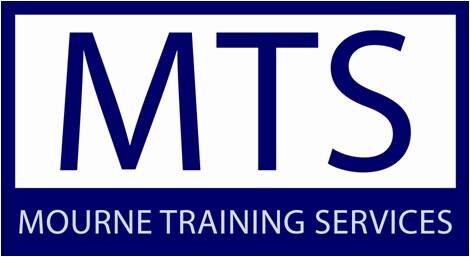TRAINING COURSE
How to Develop Stability Indicating
HPLC Methods
This course will enable you to understand how HPLC methods work, how to develop a new HPLC method, with consideration of the principles outlined in ICH Q14, and how to ensure and demonstrate that a new or existing HPLC method (e.g., a pharmacopoeia method) is stability indicating.
Synopsis
Stability Indicating Methods
Pharmaceuticals need to be assessed for stability to support the assigned shelf life. Therefore, when analysing stability samples obtained from these studies, analytical methods are required which are stability indicating, i.e., there is a measurable response which correlates with degradation (if present).
High Performance Liquid Chromatography (HPLC)
HPLC is a popular technique for monitoring the decrease in drug and corresponding increase in degradation products due to its separating abilities. However, the HPLC method must be developed carefully to ensure that degradation products are both separated and detected appropriately.
This training course is designed to provide a thorough understanding of how to develop HPLC methods specifically designed for stability indicating analysis of pharmaceuticals, following the principles outlined in ICH Q14. The course will describe strategies for performing forced degradation studies and selecting optimal HPLC method parameters to ensure that all relevant degradation products are separated, and that mass balance has been achieved.
The same strategies may be applied to existing methods to demonstrate that they are stability indicating.
This course focuses on strategies for reversed phase HPLC separations.
Attendees are invited to bring along any real life examples that they would like advice on during the training. These may be discussed during group exercises, or, where intellectual property is an issue, privately with the trainer.
Total learning time = 13.5 hours
Learning Objectives
On completion of this training course you will be able to:
- Define the objectives for the development of a stability indicating HPLC analytical method.
- Effectively assess all the available relevant information relating to the desired method.
- Perform forced degradation studies to prepare samples that will be used for the method development.
- Select suitable scouting conditions to find a suitable column and mobile phase system for an investigation of stressed samples and an evaluation of mass balance.
- Optimise the chromatographic conditions to result in the best possible separation.
How is this course delivered?
This course is delivered as a 3 day ‘virtual’ live online training event which is delivered over a 6 hour period on day 1 and day 2, and over a shorter 3.5 hour period on day 3, including breaks.
Day 1 and day 2 are typically from 9am to 3pm, and day 3 is from 9am to 12:30pm (but may depend on your time zone).
More about live online training
Total learning time = 13.5 hours
More about total learning time
The full agenda is provided in the course description.
The course may also be delivered as in-house training, either in the live online format or in a classroom based format at your site. In-house training allows customisation to meet your specific requirements.
Who will deliver this training course?
All training courses are delivered by the MTS consultant, Oona McPolin. Some recordings of MTS webinars are provided below as examples of Oona’s presentation style.
Who should attend this course?
Anyone who has some experience of using HPLC and wants to know more about how HPLC methods work, and specifically how to develop new HPLC methods which are aimed at stability indicating capability.
For example:
- Development/Quality Control (QC) analytical chemists
- Development/Quality Control (QC) managers/ supervisors
When can I attend this course in 2024?
Wed 19th to Fri 21st Jun 2024 (9am to 3pm BST/UTC+1)
How much does it cost?
£890 GBP or €1,050 EUR
Included in your course fees:
- Comprehensive course hand-outs – The training book is provided as an electronic copy (pdf) for both live online and classroom based options.
- Certificate of Attendance
- Optional post training assessment (accessed in e-MTS, our learning management system) which leads to a Certificate of Training.
- Access to training materials via e-MTS
- Post training support – Attendees can contact the trainer with questions that may occur when they apply their learning to real life situations.
Notes:
- All prices are quoted per person excluding VAT.
- VAT notice for live online training: For UK business cutomers and non-business customers (B2C) from all countries VAT is charged at the UK rate (currently 20%). For EU business customers (B2B), the reverse charge can be applied on receipt of a valid VAT identification number and VAT will not be charged. For business customers outside of the UK and EU, VAT will not be charged.
Cancellations and Substitutions
Once made and accepted by MTS, course bookings are liable for payment. Payment is due at least 14 days prior to the course start date. Cancellations prior to 3 weeks before the course date are subject to an administration charge of 25%. Cancellations received less than 3 weeks before the start of the course will not be refunded, although substitutions may be made at any time.
We reserve the right to change the programme, speakers, date or venue without notice, or to cancel an event. In the unlikely event of cancellation occurring, delegates will be notified as soon as possible and will receive a full refund of fees paid.
What do people say about this course?
“The course gave a solid in depth overview of development of HPLC methods, which will help greatly in my current role & help with method optimisation for our clients.”
A. Curley, PPD
“This was very useful course for me and I will definitely use the information provided at my next project.”
H. Halldorsdottir, Actavis
“Thank you for your presentation!”
R. Alder, ETH Zurich
